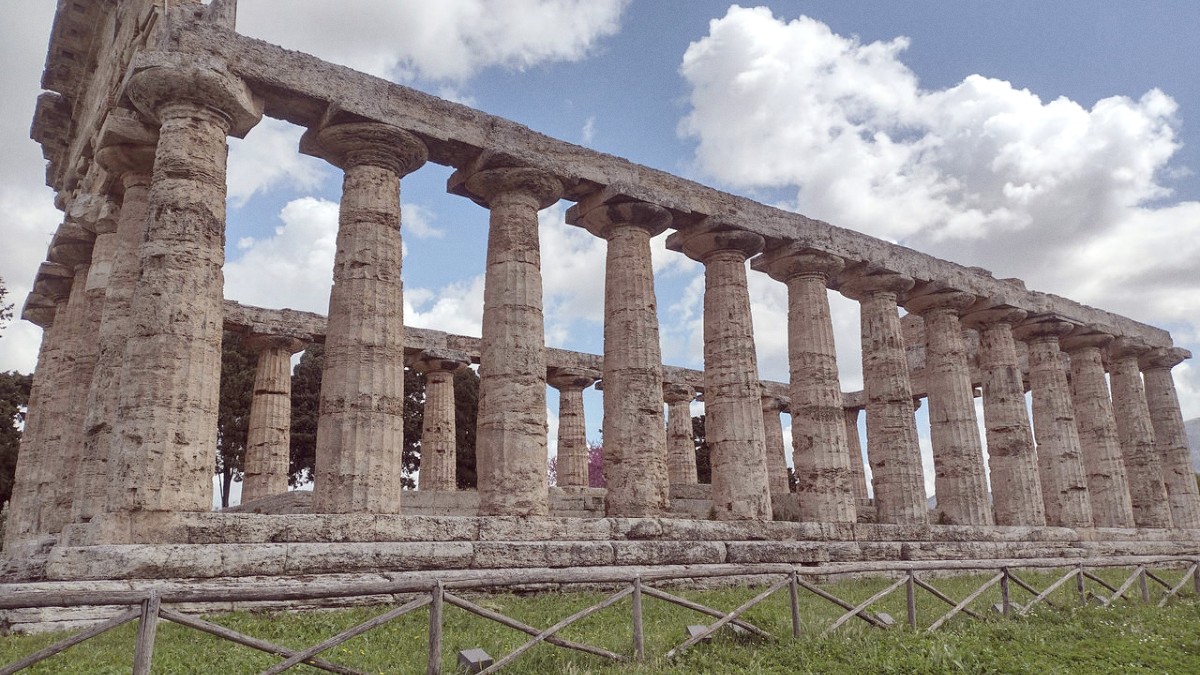
Campania, Italy
Major Italian mobile providers include TIM, Vodafone, and WindTre. Purchasing a local SIM card ("carta SIM") for data and calls is cost-effective for stays exceeding a few days. You will need your passport for registration. SIM cards are available at mobile provider stores in larger towns or at airports. ESIMs are also increasingly available from some providers for compatible phones, allowing digital activation of a local data plan without a physical SIM card.
Most hotels, B&Bs, and many restaurants and cafes offer free Wi-Fi. Public Wi-Fi networks are available in some city squares or public buildings in larger towns like Salerno. For consistent internet access, a local SIM card or a Portable Wi-Fi device is beneficial.
Post offices ("Poste Italiane") are available in Capaccio Scalo for sending postcards or parcels. They typically operate during standard business hours.
Italian is the official language. English is spoken by many in tourist-facing roles (hotels, main attractions, some restaurants) but less so in smaller shops or rural areas. The Google Translate app (with offline translation capability) or a small Italian phrasebook are highly recommended to bridge language gaps.
Even a few Italian phrases make a positive impression and aid interactions.
Navigate local schedules during your visit.
Generally open from 9:00 AM to 1:00 PM and then from 4:00 PM to 8:00 PM (or 4:30 PM to 8:30 PM) for the afternoon Ripeso (siesta/afternoon break). Larger supermarkets might have continuous hours.
Lunch service typically 12:30 PM to 2:30 PM. Dinner service usually starts 7:30 PM to 8:00 PM and extends later. Many restaurants close between lunch and dinner.
Hours vary, typically 9:00 AM to 5:00 PM or longer in summer. Check specific opening hours for the Paestum Archaeological Park and Museum, as they vary by season. Often closed on Mondays.
Banks generally open Monday to Friday, from 8:30 AM to 1:30 PM and a short afternoon session from 2:30 PM to 4:00 PM. ATMs (Bancomat) are widely available in Capaccio Scalo and tourist areas, accessible 24/7. These often provide the best exchange rates.
On public holidays, banks, post offices, and many shops may be closed. Public transport might operate on reduced schedules. Attractions might be open but often have special holiday hours. Coastal establishments might close or reduce hours during the low season (late October to March).
Verify specific opening hours for attractions and businesses, especially during holidays or the low season, to plan your activities effectively.
Navigate local customs with courtesy and respect.
Use Buongiorno (good day/morning) or Buonasera (good evening) upon entering shops, restaurants, or when addressing strangers. Ciao is informal, suitable for friends or younger individuals. A handshake is a common introduction. Upon leaving a shop, a simple Arrivederci (goodbye) reflects politeness.
For churches and religious sites, shoulders and knees should be covered. This guideline applies to active churches, not strictly the archaeological park. Italians tend to dress well for dinner, so smart casual attire generally fits most restaurants. In everyday settings, Italians generally present themselves well; avoid overly revealing or sloppy clothing, even in hot weather.
Maintain hands visible on the table (not in your lap) while dining. Do not cut pasta with a knife; twirl it with a fork. Do not ask for extra cheese on seafood pasta; it is considered a culinary offense. Cappuccino is for breakfast only; espresso is the post-meal coffee.
Photography is generally allowed in public areas and at archaeological sites for personal use. Some museums or specific exhibits may prohibit flash photography or photography altogether. Always check signs. Be respectful when photographing people; ask permission for close-up shots. Avoid discussions of politics unless initiated by locals and you are confident in your understanding of the distinctions. Do not mock Italian culture or cuisine; Italians hold pride in their heritage. Avoid being overly loud in public spaces.
Adherence to local etiquette fosters positive interactions and a travel experience.
Accessibility in Italy varies, especially in ancient sites.
Accessibility varies. While new public buildings and transport are often built with accessibility in mind, older infrastructure, especially historic centers and ancient sites, present challenges due to cobblestones, stairs, and uneven terrain.
Paestum Archaeological Park has developed some accessible pathways, specifically around the major temples. However, large parts of the site feature uneven ground, gravel, or steps. The museum building is generally more accessible. It is advisable to contact the park directly for specific accessibility information. Trenitalia offers assistance for travelers with reduced mobility (Sala Blu service at major stations), but booking in advance is a requirement. Regional trains may have varying accessibility levels.
Specific services for travelers with visual or hearing impairments may be limited in Paestum. Major museums may offer audio guides or tactile exhibits. It is advisable to contact specific attractions in advance to inquire about available services and to determine if they meet your needs.
Contact the Parco Archeologico di Paestum directly for the most current information on accessibility within the park and museum. Their official website provides contact details. Accessible Italy (accessibleitaly.com) stands as a resource for travelers with disabilities in Italy, offering advice and potential tour options.
If you have specific accessibility needs, plan your itinerary carefully. Confirm details with hotels, tour operators, and attractions well in advance of your trip.